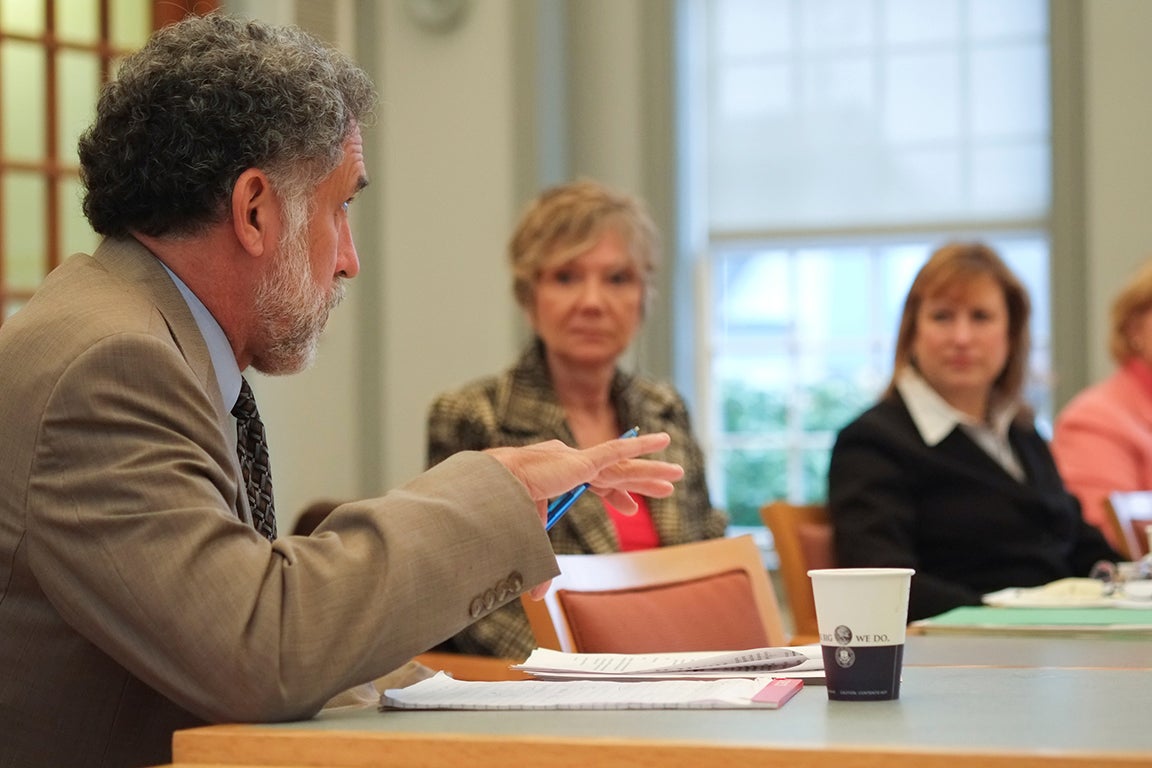KINGSTON, R.I. — December 1, 2016 — Rick Brooks, Rhode Island’s director of Healthcare Workforce Transformation, told nursing leaders gathered at the University of Rhode Island that higher education is the linchpin in the evolution of health care professions and the entire health care system.
“We can’t expect to transform the system until we transform how we prepare people to work in it,” he told the educators, advocates and providers. “We simply can’t do it one graduating class at a time. Most of the health care workforce that will be dealing with transformation is already in place and needs to be brought up to speed.”
Brooks, whose newly created position is housed in the state’s Executive Office of Health and Human Services, spoke at a hands-on meeting of members of the Rhode Island Center for Nursing Excellence. The meeting included Barbara Wolfe, dean of URI’s College of Nursing, and nursing deans from Rhode Island College, Community College of Rhode Island, New England Institute of Technology and St. Joseph School of Nursing, as well as leaders from the Rhode Island Board of Nursing, the Miriam Hospital, South County Health, Care New England, the Rhode Island Action Coalition and the Rhode Island Nurses Institute Middle College, a charter school in Providence.
Betty Rambur, the Routhier Endowed Chair for Practice at URI’s College of Nursing, convened the meeting to identify goals and strategies to achieve excellence in nursing in the state and to empower nurses as leaders in an evolving health care landscape. “We have an opportunity to reshape the face of health care. It really is an ethical imperative,” Rambur said.
“We need the voices of nurses at every table,” Brooks noted as he outlined the challenges of creating consensus, developing priorities and implementing policies and programs that bring real change. “Nurses are on the front line; they see what is working and what’s not working. They have much to contribute.”
His comments came on the heels of Rhode Island Gov. Gina Raimondo’s announcement that the U.S. Centers for Medicare & Medicaid Services will award $129.5 million to the state over five years to enhance health care for Medicaid patients, which account for one third of Rhode Island’s population. The program includes $6 million for the state’s public colleges to develop health care workforce curricula and programming.
Brooks and Rambur noted that while the United States spends far more than any other country on health care, it realizes only mediocre outcomes. To change that, teams of interdisciplinary health professionals must come together in new ways to achieve health care’s Triple Aim Initiative: Better care, smarter spending and healthier people, Brooks said. This includes looking at the system holistically, from how providers are paid and outcomes are measured to how people receive care, with an emphasis on eroding health disparities based on income, ethnicity, culture or geography, he said.
That shift to interdisciplinary teams of care and practice will mean greater roles for nurses as team leaders, especially as the model moves away from acute care settings. This shift will emphasize new areas for training and advancement, including such non-licensed professionals as peer counselors and community health workers, Brooks noted. Community-based health strategies focused on keeping people in their homes whenever possible will rely on emerging technologies, occupations and methods, all of which require new approaches to education, training and implementation, he told the group.

